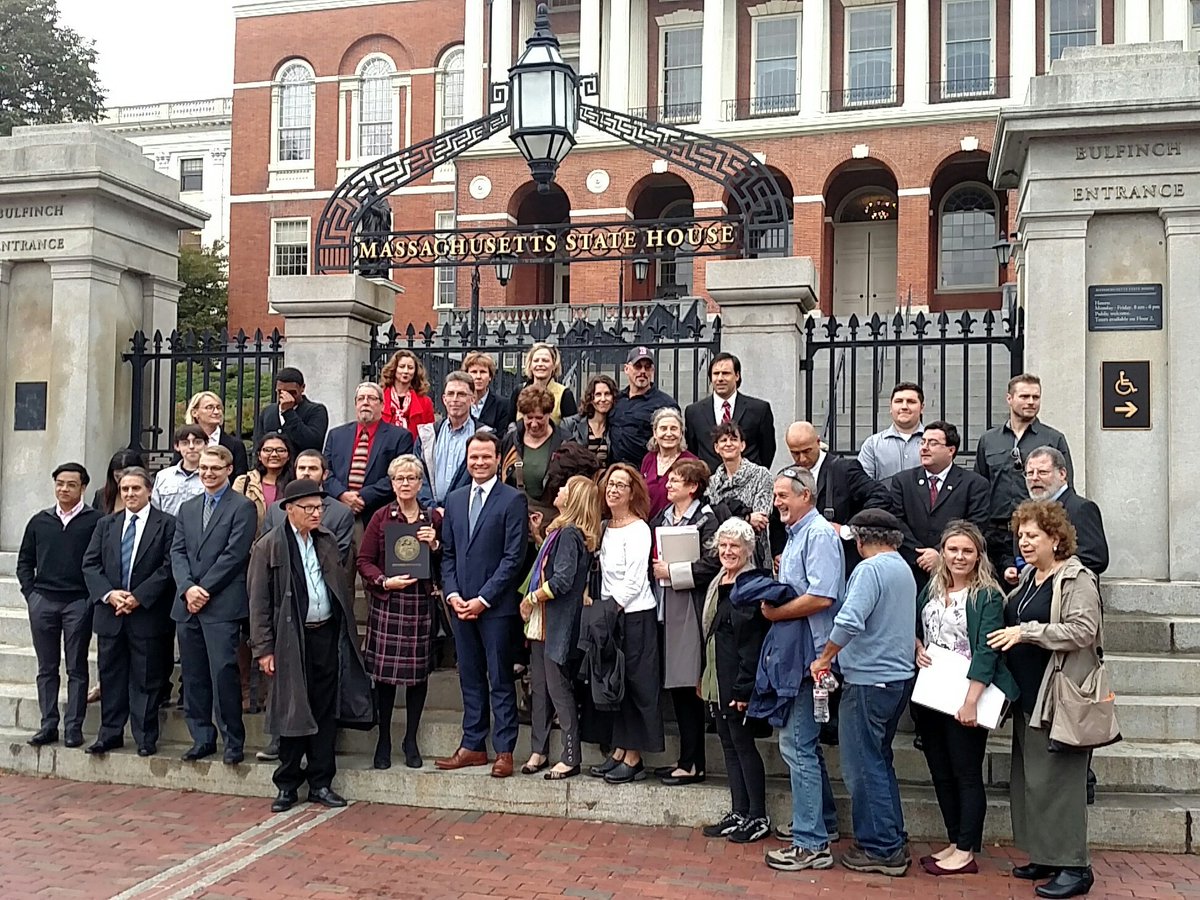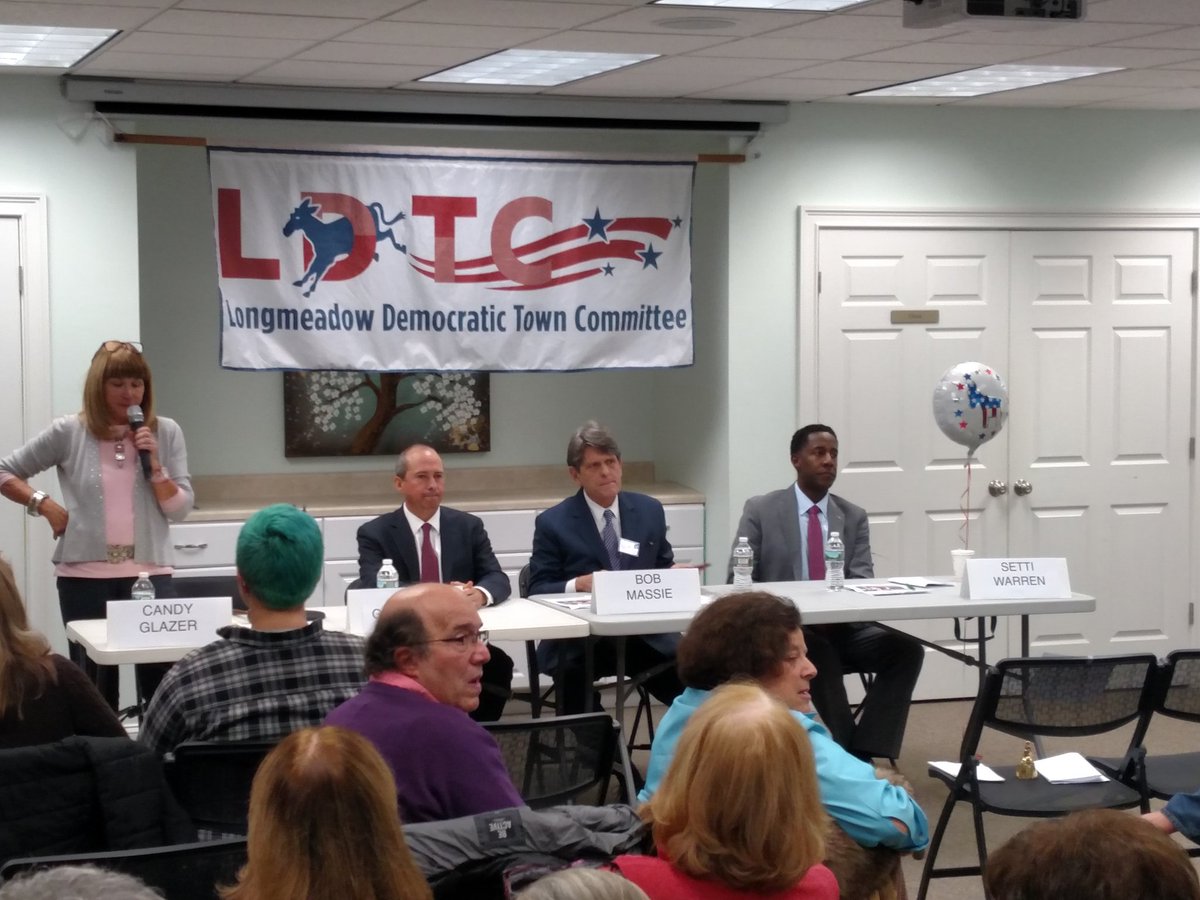The Year in Springfield 2017…
For Springfield, 2017 seemed a year that confirmed some of the assumptions about the city. Despite a rare double-retirement at-large, voters did not turn out. But the changeover was consequential. Like the rest of the world, Donald Trump left an impact on Springfield, too.
In early January there were changes in city leadership positions. Ward 8 Councilor Orlando Ramos became Council President succeeding Ward 2 Councilor Michael Fenton. At-large Councilor Justin Hurst succeeded Ramos as vice-president.
Mayor Domenic Sarno made his own changes, announcing on January 1 that the city would not renew Joseph Conant’s contract as Fire Commissioner. The reasons appear tied Conant’s failure to terminate a deputy chief in violation of the residency ordinance. Fire Department residency would become an issue throughout the year.
As the darkness of Trump’s inauguration swallowed the country, unease welled up in Springfield. The city’s Latino community, composed of many non-Puerto Ricans who lack citizenship or green cards, feared stepped up immigration raids. Sarno, for a time at least, began to nuzzle Trump and coo sweet nothings into his White House’s ear.
Although Springfield residents resisted the provocateur-in-chief, attention also turned toward Sarno, too. The mayor refused, in essence, to codify existing Springfield Police policy to not inquire into people’s immigration status. Sarno even threatened to sic Code Enforcement on a church offering undocumented immigrants shelter.
To be fair, Sarno didn’t only offer wine and roses to Trump. The proposed federal budget would slash key programs like the Community Development Block Grant. Springfield uses those funds to fill in gaps in city services and for neighborhood programs. Sarno joined the choruses of municipal leaders condemning the move, if more gently than most.
Meanwhile, Springfield residents joined the Women’s March in cities across the country. The day after Trump’s poorly-attended Inauguration, millions in perhaps the largest single-day protests in American history.
Later area residents also streamed to Bradley International Airport, which Springfield shares with Hartford, to protest Trump’s travel ban.
In the minority, the city’s representation in Congress fought back as much as possible. Representative Richard Neal, now the top Dem on Ways & Means, condemned Republican chicanery to dismantle the Affordable Care Act and redistribute wealth to the rich via tax cuts.
Senators Ed Markey and Elizabeth Warren could only slow down Trump’s unqualified nominees. For reading a letter 30 year-old letter from Coretta Scott King opposing a judicial nomination Sessions once sought, Republican Leader Mitch McConnell shut Warren down for violating Senate rules. “Nevertheless, she persisted”—McConnell’s words—became a catchphrase for Warren and women.
State Representative Bud Williams finally conceded what many assumed—or demanded—that he would not seek another term on the City council. He had refused to resign from the Council after taking Ben Swan’s old seat in January. His presumed retirement had already stoked a rush of candidates.
At-large Council candidate included past councilors, community activists and eager do-gooders. Jesse Lederman, a 2015 candidate, former Councilor Tim Ryan, activists like Jynai McDonald and Victor Davila and city boosters like Kelli Moriarty-Finn formed a diverse field.
On the School Committee, at-large member Norman Roldan retired, too. Among the candidates was former at-large City Councilor Jimmy Ferrera.
Four ward had races with Fenton, the Ward 2 councilor, facing an eager challenge in Kency Gilet. Ivelisse Gonzalez, a 2015 mayoral candidate, also ran, but she did not survive the preliminary.
But the race cracked wide-open when, hours before the deadline to pull papers, at-large councilor Tim Rooke retired. The 22-year incumbent’s exit heralded the end of an era. Rooke and Williams are among the last of the pre-Control Board councilors.
The race also briefly featured former State Representative Cheryl Rivera, who would have been a top tier candidate. However, the rules of the courts, where she worked, forbade her from running.
On state matters, Senator Eric Lesser’s Boston to Springfield rail study was foiled again. This time it was not Eastern Massachusetts Governor Charlie Baker—who has upped his visits West just in time for reelection—but the legislature. It was left on the FY2018 budget cutting room floor as the Senate and House hammered out their differences.

Sen. Lesser brings backup. (WMassP&I)
Lesser was not deterred and chartered a bus—not Peter Pan—to bring supporters to Boston and testify on behalf of his study’s standalone bill.
Springfield’s residency ordinance entered a new phase with the approval of a labor pact. New firefighters must comply with the ordinance for the first time in 30 years. Firefighters’ acquiescence to the policy boosts efforts to bring unionized public safety workers under the bill. However, the district fire chief’s contract remains in limbo.
Sarno also appointed a new fire commissioner in an opaque process that, like the police commissioner search in 2014, drew complaints and jeers.
While eyes remained on MGM and, to a lesser extent, projects like CRRC, an assessment by The Wall Street Journal seemed to doubt Springfield’s position. Something like a connection to a bigger metro area may still be necessary.
Nonetheless, the reopening of Union Station in June was a milestone for the city. Reviving the long vacant station building had been a 40-year political goal of Rep Neal’s, who finally saw it to significant completion.
As MGM marched toward its 2018 opening, it is negotiating with Peter Picknelly to build the casino’s housing obligations in the former Court Square hotel. MGM still face doubts, but it has caught some breaks. The Connecticut tribes will not complete their satellite facility in East Windsor before MGM Springfield opens.
Few Springfield voices critiqued Trump’s policies as loudly as Jafet Robles. He helped organize rallies at the federal, state and city buildings against deportations and the governor’s half-baked idea to let police get in on the immigration enforcement action. (Immigration detainers are a civil matter and the Massachusetts Supreme Judicial Court ruled local police cannot honor them).
Robles’ murder in September sent shockwaves through the city’s activist community. The case remains unsolved. Hundreds, perhaps thousands attended his funeral. Neighbor 2 Neighbor, where he worked, led a contingent of mourners during Springfield’s Puerto Rican parade.
Hurricane Maria’s impact may well reach up to Springfield and other cities with large Puerto Rican populations. After the storm devastated the island, a mass exodus began. Springfield and Holyoke expect to see an influx of migrants who will need education, housing and medical care.
Springfield’s primary election set the tone for the general. Aside from the absence of Marylin Felix, Kelvin Molina and Willie Thomas who fell in September, the November the at-large Council race were to the preliminary. Jesse Lederman and Tim Ryan placed 4th and 5th behind the incumbents and will take their seats in January.
All incumbents won in the wards, with Fenton battering Gilet’s spirited campaign. In the School Committee race LaTonia Monroe Naylor come back from third in the preliminary behind Ferrera and incumbent Denise Hurst (who also won the most votes of anybody this year). In displacing Ferrera in the general, she blocked his resurrection.
Turnout was pathetic, though. Unless corrected, this will bedevil Springfield and undermine the quality and credibility of its democracy.
Even as voters in Springfield ignored the ballot box, elections across the country in November showed incredible enthusiasm among Democrats, who took New Jersey’s governorship, retained Virginia’s and, in a special this month, snagged a Senate seat in ALABAMA!!

Rep. Neal at a presentation at the recently opened Union Station. Primary challenge notwithstanding, Neal’s 2017 was pretty good. (WMassP&I)
No, none of these affect Springfield directly. Yet should the backlash to Trump hand Democrats the House, Richard Neal would chair Ways & Means.
However, national Democratic luck is not the only thing between Neal and the gavel. Tahirah Amatul-Wadud, a civil rights lawyer, announced she would challenge Neal in the 2018 primary.
In terms of state influence, Western Mass suffered a blow when Stanley Rosenberg stepped down as Massachusetts Senate President. His husband, Bryon Hefner stands accused of sexually harassing people who work in Massachusetts politics. Nothing yet has implicated Rosenberg himself of wrongdoing. Though his exit is said to be temporary, a return could be difficult. Should his departure become permanent, the 413 loses its prominent place at Beacon Hill’s table.
After the election, Springfield Council President Ramos secured the votes to remain president. Councilor Walsh will be veep in 2018. In the new year, the focus will be on MGM’s opening and beyond that the 2019 mayoral election.
In the short-term, the spotlight will shine on the Council once again. Will new members encourage a more activist path? Will more on police oversight move this session? The Council must also review more amendments to MGM’s agreement.
On the rail front, service to Boston can’t even get onto the drawing board, but more trains to New Haven will begin running in May. Perhaps that may offer lessons for linking Springfield and the 413 to the East.

Can one of these gentlemen dislodge Baker? (WMassP&I)
Beyond the city, the governor’s race will go into full swing. Democratic candidates are competing for attention even as Baker’s approval rating—all air though it may be—blots out the Sun. Elizabeth Warren will be seeking reelection, likely facing a well-funded Republican effort to tarnish her should she run for president. Meanwhile, assuming Neal wins his primary, he could become among the most powerful figures in Washington.
Every new year seems consequential, but given the state of national and city affairs, 2018 could be uniquely so.





